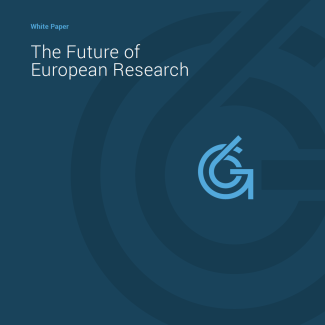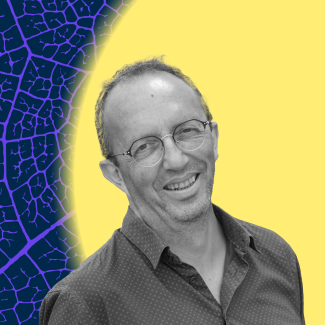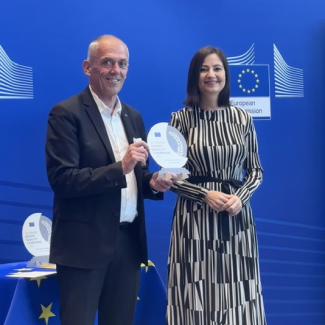The G6 is preparing the future of European research
Following a symposium in April, the presidents of the G6, including the CNRS Chairman and CEO, are presenting today their joint recommendations for the next European Union Framework Programme on Research and Innovation.
Making research a top priority for the European Union, and reflecting this ambition in a strong budget for frontier basic research and targeted research—that is the first of seven recommendations made by the G6 to the European Commission regarding the next European Union Framework Programme on Research and Innovation “FP10,” which will succeed the Horizon Europe Framework Programme in 2028.
The G6 is an influence network consisting of the primary European multidisciplinary research organisations: the Consiglio Nazionale delle Ricerche (CNR, Italy), the CNRS (France), the Consejo Superior de Investigaciones Científicas (CSIC, Spain), the Helmholtz Association, the Leibniz Association, and the Max Planck Society (MPG, Germany). It represents over 142,000 collaborators in Europe, and brings together the leading national actors in European research in terms of expertise, networks, and infrastructure. It regularly communicates the joint positions of its members, for example with regard to the lessons learned from the Covid-19 pandemic, open science, freedom of research, and support for the European Research Council (ERC).
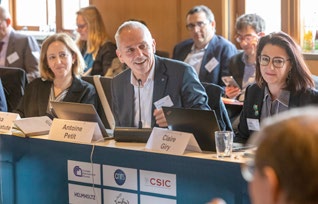
The presidents of G6 members–Maria Chiara Carrozza (CNR), Antoine Petit (CNRS), Eloísa del Pino Matute (CSIC), Otmar Wiestler (Helmholtz Association), Martina Brockmeier (Leibniz Association), and Martin Stratmann (MPG)–met for a symposium in April 2023 to lay the groundwork for the next European Framework Programme. “The end date of the next Framework Programme may seem far, but experience has shown that it is never too early to begin conveying a few important messages,” assures Alain Mermet, the Director of the CNRS Branch Office in Brussels.
In fact, a number of working groups have been established in Brussels, such as the Commission Expert Group on the Interim Evaluation of Horizon Europe1 . Comparable to the committee led by Pascal Lamy, the former Director General of the World Trade Organization, as part of preparations for the 9th Framework Programme, one of the group’s missions will be to reflect on the strategic orientations of the FP10. With its European Research Area and Innovation Committee (ERAC), the Council of the European Union has also created a working group on the subject. “It is therefore timely for the G6 to position itself starting today as a contact for these various groups, with a view to promoting the joint interests of its members,” adds Mermet.
The April symposium was thus an opportunity to discuss the vision of France, Italy, Spain, Germany, and the European Commission on the future of European research. Notably present were representatives from the European Commission, including Maria Leptin, the President of the ERC, and Claire Giry on behalf of the French Ministry of Higher Education and Research, in addition to her German, Spanish, and Italian counterparts. Scientists from G6 members also presented their points of view, such as the physicist Bérengère Dubrulle2 , who was named scientific woman of the year (in French) by the French Academy of Sciences in 2022, and the chemist Jean-Marie Tarascon3 , winner of the 2022 CNRS Gold Medal for his research on energy storage.
The discussions explored multiple subjects that today are part of G6 recommendations, such as the implementation of innovative solutions to facilitate international cooperation. Other subjects explored include the role of basic science in groundbreaking innovation, and the importance of maintaining European scientific and industrial leadership in key domains connected to major societal challenges, such as the energy transition. The G6 recommends strengthening Europe’s ties with countries across the globe that share its values, as well as creating alliances of excellence around strategic fields, such as artificial intelligence or quantum technology, in addition to bolstering the interface with industrial actors and SMBs, and creating a European institute focusing on energy. To stimulate innovation and creativity, the evaluation of projects should concentrate more on the process rather than the impact.
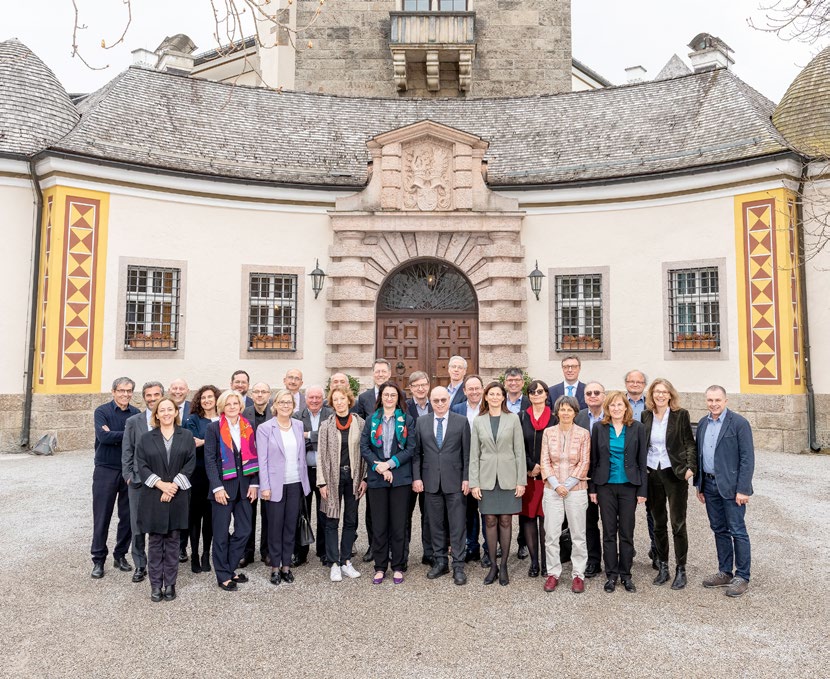
Antoine Petit, the CNRS Chairman and CEO, led the dialogue regarding the need to maintain basic research of excellence in all European Union programmes, akin to ERC grants (in French), as well as to provide the means needed for Europe to remain one of the world’s most attractive and competitive centres for research. “Research excellence is not a luxury; it is an absolute necessity to address pressing global, social, and industrial challenges, for the benefit of all European citizens,” stresses Petit.
Open science (in French) and support for policy-making based on conclusive data are also among the recommendations, along with funding for cutting-edge research infrastructure, such as the EOSC, which should be better coordinated on both the national and European levels. The G6’s 7 recommendations for the FP10 are laid out in a white paper that will be submitted to the European Commissioner.
- 1For further information on the subject, contact the Brussels Branch Office: dei-europe@cnrs.fr
- 2CNRS Senior Researcher at the laboratory Service de physique de l'état condensé (CNRS/CEA/Université Paris-Saclay), and Director of Les Houches School of Physics (CNRS/CEA/ENS Lyon/Université Grenoble Alpes).
- 3Professor at the Collège de France, and the Director of the research network Réseau sur le stockage électrochimique de l'énergie, as well as the laboratory Chimie du solide et de l'énergie (CNRS/Collège de France/Sorbonne Université).

